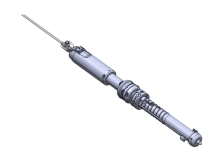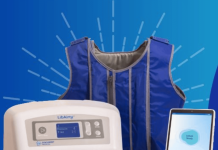Heartflow received FDA 510(k) clearance for its next-generation Heartflow Plaque Analysis algorithm.
With clearance, the Mountain View, California-based company says its algorithm is now available in the U.S. It also has coverage from Cigna across all of its lines of business beginning in October. Cigna joins UnitedHealthcare in providing coverage for the plaque analysis tool.
Related: Sencilia secures funding to make infusion therapy safer and more precise
It marks the latest positive development for Heartflow after the company last month closed an upsized initial public offering (IPO) with proceeds totaling approximately $364.2 million.
The technology features an updated algorithm, expanded nomogram and advanced, 3D color-coded visualization of plaque type, volume and distribution. Heartflow says it empowers clinicians with the insights needed to make confident care decisions with ease. The company touts it as the only FDA-cleared, AI-powered plaque quantification tool. This approval comes nearly three years after the platform’s initial nod from the FDA.
Heartflow’s platform delivers a reported 95% agreement with the gold standard, intravascular ultrasound (IVS). The latest algorithm advancement shows 21% improvement in plaque detection compared to the first-generation algorithm.
Leveraging enhanced AI, Heartflow says its updated algorithm marks the most sophisticated iteration of its technology. It provides clinicians with an intuitive visual representation of plaque types to enable rapid assessment of coronary artery disease (CAD) location and severity. The platform uses data from around 273,000 patients, a dataset nine times larger than any current plaque quantification study, the company says.
“Understanding not only how much plaque is present, but also plaque type and distribution, is critical in predicting patient risk and guiding personalized treatment,” said Dr. Matthew Budoff, professor of medicine at the David Geffen School of Medicine at the University of California Los Angeles (UCLA) Medical Center. “With these enhanced capabilities, Heartflow Plaque Analysis provides clinicians with the clarity we need to move from detection to decision with speed and confidence.”




